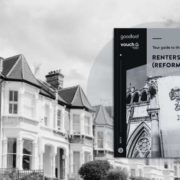House prices in London fell in February 2019, making them cheaper than at any time since February 2016, according to the latest House Price Index by the Office for National Statistics (ONS).
London house prices saw a 3.8 per cent fall year-on-year, the largest of any region in the UK. This was followed by the South East region, where prices fell 1.8 per cent in the year to February 2019, according to ONS figures.
Of all the regions surveyed in the ONS House Price Index, Northern Ireland and Wales were the top performers. Average house prices rose by 5.5 per cent in Northern Ireland, whereas Welsh home prices rose by 4.1 per cent year-on-year.
House price growth slowed across the UK as a whole, with the average house price change slowing to 0.6 per cent in February 2019, the slowest annual gain seen since October 2012.
Brexit effect
Howard Archer, chief economic advisor at the EY ITEM Club, suggested that Brexit could be the culprit behind the overall slowdown: “Caution over making major purchases is currently being magnified by uncertainties over Brexit.”
However, Mr Archer claimed there could be some room for optimism in the UK housing market, looking forward: “It is possible that the avoidance of a ‘no deal’ Brexit at the end of March could provide a modest boost to the housing market, through easing some of the immediate uncertainty and concerns.”
Demand remains solid
Mr Archer added that the fundamentals in the UK housing market are supportive of prices at present, commenting that “consumers’ purchasing power has clearly picked up since mid-2018…employment has risen strongly recently and is at a record high while mortgage interest rates are still at historically low levels”.
It was also suggested that housing supply could support prices further, as Mr Archer stated: “Meanwhile, a shortage of houses on the market will also likely offer some support to prices.”
This comes at a time when the government has pledged to increase the supply of housing, to ensure 300,000 new homes a year, by the mid-2020s.





















Comments